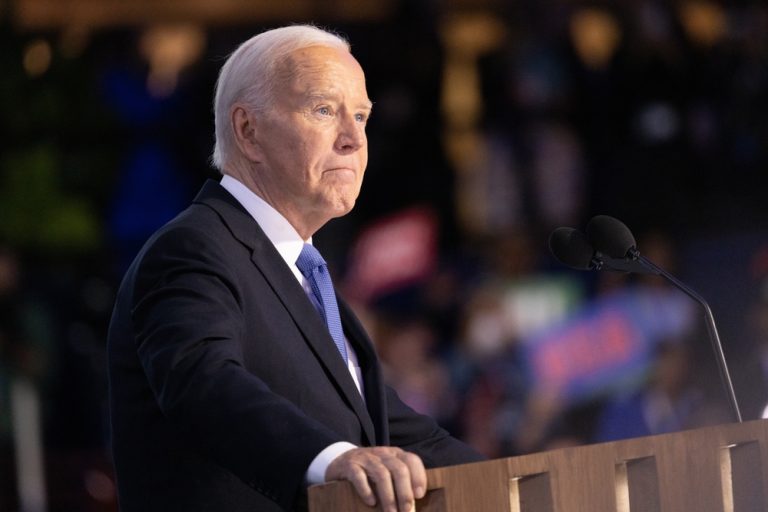Amid escalating tensions between Israel and Iran, US President Joe Biden has stated his firm opposition to any potential Israeli strike on Iranian nuclear facilities. The President’s comments come after Iran launched a significant missile attack on Israel, prompting concerns over how Israel might respond. With both nations on edge, Biden’s remarks aim to temper the situation, pushing for a measured and proportional response rather than further military escalation.
The Iranian Missile Barrage and Its Fallout
On Tuesday, Iran launched a barrage of around 180 missiles toward Israel. The Israeli Defense Forces reported that their missile defense systems successfully intercepted most of these. This attack was in direct response to the killings of key figures, including Hamas political leader Ismail Haniyeh, Hezbollah leader Hassan Nasrallah, and Iranian Revolutionary Guards Corps commander Brigadier General Abbas Nilforoushan. The offensive also followed Israel’s announcement of a ground assault into Lebanon, where Israeli forces are targeting what they describe as Hezbollah’s “terrorist infrastructure” in border villages.
Iran’s missile strike was perceived as an alarming escalation, with both sides entrenched in a cycle of retaliatory measures. US State Department spokesman Matthew Miller commented, “It’s clear that this was an unprecedented escalation by Iran. Israel has the right to respond to it. We’re having discussions about what that response will be.”
Biden’s Response
During a trip to North Carolina to assess hurricane damage, President Biden was asked by a reporter whether he would support an Israeli attack on Iran’s nuclear sites. His response was firm: “The answer is no.”
Biden reiterated that while Israel has the right to defend itself, its response must be proportional. He noted that he had discussed the matter with other G7 leaders, who shared his stance, stating that Israel “should respond proportionally.” These remarks suggest that the international community, particularly the United States and its allies, are advocating for de-escalation rather than a rapid escalation of military engagements between Israel and Iran.
Despite Biden’s opposition to an Israeli strike on Iranian nuclear sites, he reaffirmed the United States’ unwavering support for Israel. In a video message released on Tuesday, Biden disclosed that under his direction, US forces in the region assisted in intercepting the Iranian missile attack, underscoring the deep military cooperation between the two nations.
“The Iranian attack had been ‘defeated and ineffective,’” Biden said, calling it “a testament to intensive planning between the United States and Israel to anticipate and defend against the brazen attack we expected.”
He left no doubt about America’s stance: “Make no mistake, the United States is fully, fully, fully supportive of Israel.”
Balancing Acts and Diplomatic Efforts
As the conflict intensifies, the Biden administration has been vocal in its efforts to prevent further military actions in the region. The US has been involved in ongoing negotiations to broker a ceasefire between Israel and Hamas, though these efforts have so far been unsuccessful. The White House has also remained tight-lipped about specific strategies or guidance it might offer Israel regarding a response to Iran’s attack. Nevertheless, the emphasis from both Biden and the State Department is clear: any Israeli retaliation must not lead to a broader conflict.
With tensions at a boiling point, the international community watches closely as Israel deliberates its next steps. President Biden’s stance reflects a desire to avoid a wider war while maintaining support for Israel’s right to self-defense. The road ahead will likely be shaped by diplomatic efforts and military coordination as both nations seek to navigate an increasingly volatile situation.


